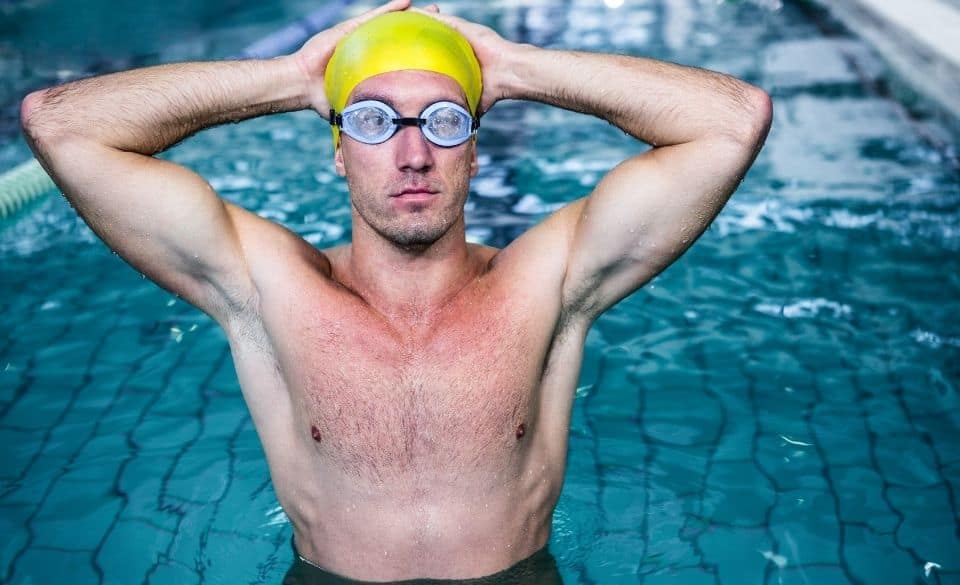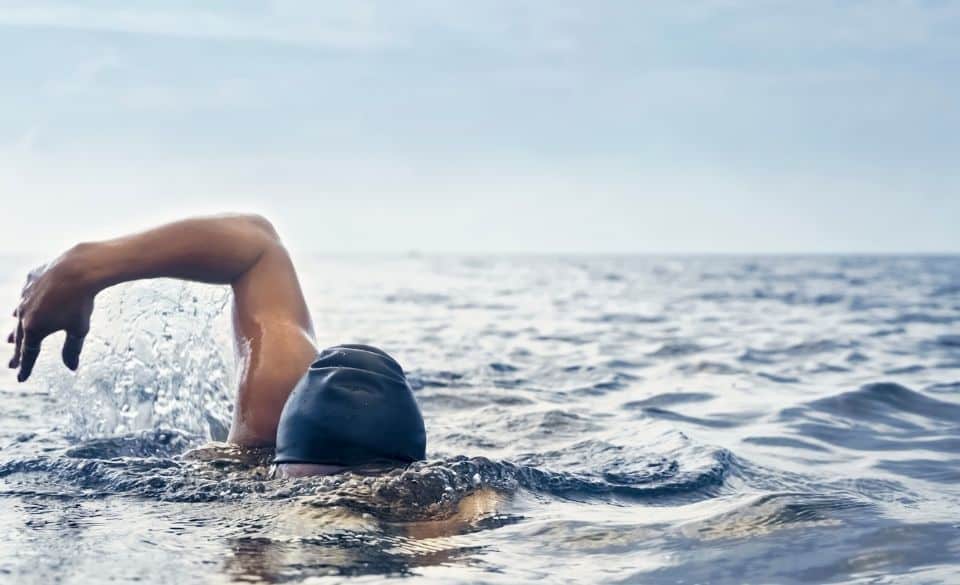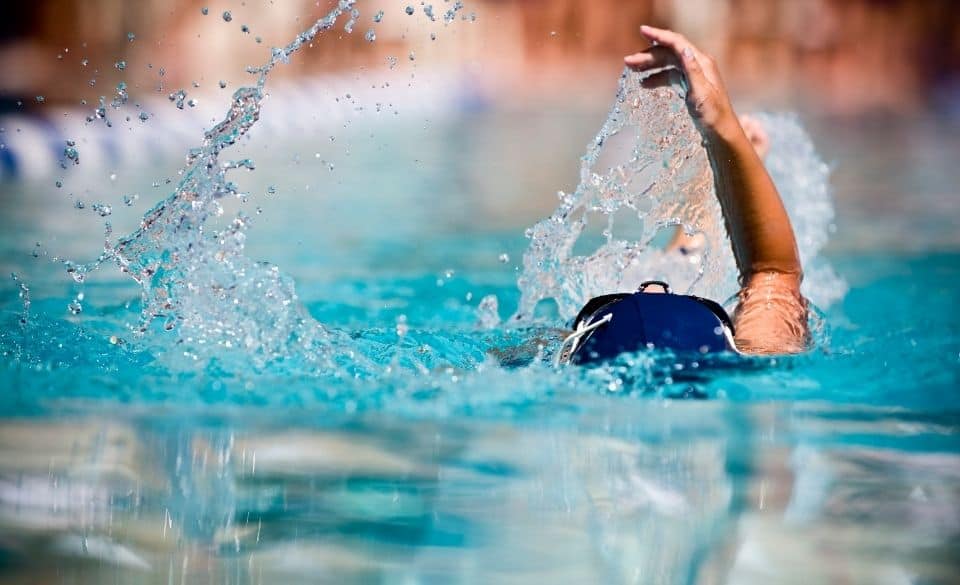
Dizzy After Swimming? A Complete Guide To Vertigo From Swimming
Page Contents
As a triathlete, we have all gotten out of the water and felt dizzy after swimming. But what causes this?
The feeling of dizziness and headaches after swimming can be caused by numerous things. In this article, we look at what causes vertigo and that dizzy feeling after getting out of the water.
Dizzy After Swimming? Here’s What You Should Know?
Triathletes can often find themselves disorientated after an Ironman swim or even dizzy after swimming in the pool. This is known as postural hypotension, which in simple terms, means dizziness. It is a common condition that triathletes and swimmers often deal with, so what is the cause of this?
When you spend vast amounts of time in a horizontal position, the pressure on the head is low. Most of the pressure is located at the feet, which leads to symptoms of dizziness and light-headedness when you stand up quickly.
This is why it’s common that triathletes feel dizzy after swimming and head into transition with a feeling of light-headedness. Often you won’t feel the effects directly until you reach transition, which can then slow down your race considerably.
To prevent the feeling of being dizzy after swimming, make sure the last 50 meters of the swim you increase your kicking and breathing. This will help to increase the blood flow to the legs and get the blood flowing around the neck. Once you start running into transition, you can try some breathing techniques if you are feeling light-headed.
If you struggle with being dizzy after swimming, try using a compression suit, it can help create an even blood flow around the body. Combating postural hypotension while your swimming.
Other factors that can make you dizzy is not breathing properly in open water or not wearing earplugs or a swim cap.

Headache & Dizziness After Swimming
If you swim regularly, you may find you end up with a headache and dizziness after swimming. It may be only when you use a certain swim stroke or a maneuver that these symptoms exist. Either way, it can last for several minutes up to several hours.
Make sure you finish your swim with a low intensity warm down and take your time getting out of the pool. It will help reduce the symptoms and allow the blood to rush slowly back to the head. If you experience regular headaches after swimming check the equipment you use. Swim goggles in particular and the swim cap you use, can both cause unwanted pressure to the head if they don’t fit correctly.
If you are new to triathlon or swimming, make sure to learn to breathe properly. This is the number one cause of headache and dizziness after swimming for beginners.
Can You Get Vertigo From Swimming?
The most common causes of vertigo are ear infections but benign paroxysmal positional vertigo (BPPV) is another major cause. Both of these can cause dizziness that lasts up to one minute, but how about if you are a swimmer or triathlete? Can you get vertigo from swimming?
The constant turning of your head while swimming can cause the small crystals of calcium in your ears to move. So it’s quite common for swimmers to experience vertigo at some point in their swim training.
If you are regularly swimming in the open water, Aural vertigo may be a more common diagnosis for the open water swimmer. Aural vertigo is caused by cold water entering the ears. And in certain conditions, it may cause reflex activity in the canals of the ear. If this is the case, you may experience dizziness, nausea, and sometimes vomiting.
Can You Swim With Vertigo?
If you have vertigo, ideally you should avoid swimming until you have fully recovered. Make sure you stop your head from being lower than horizontal for long periods.
Returning to swimming after vertigo can take up to 2 weeks. Once you have recovered, it’s a good time to focus on your head position in the water and slow down the swimming pace. This is one of the most common reasons why beginner swimmers experience vertigo. They don’t focus enough on their head position in the water.
Once you get back into the pool, start with adding backstroke into your program. Backstroke will help keep the head in a relative position and prevent any sudden movements.

Can Swimming Cause BPPV?
Moving your head suddenly during swimming can cause a condition known as BBPV (Benign Paroxysmal Positional Vertigo). The condition causes a sensation that makes the inside of your head feels like it is spinning. It can also cause episodes of dizziness and because it is often triggered by changes in your head position.
Since swimmers are often moving their heads suddenly during open water swimming, they are more prone to the condition than pool swimmers.
To prevent the possible reoccurrence of BBPV during swimming make sure you keep your head in a more fixed position through backstroke. Then try to rotate your breathing on each side while swimming freestyle if you have fully recovered from BBPV (Benign Paroxysmal Positional Vertigo).



